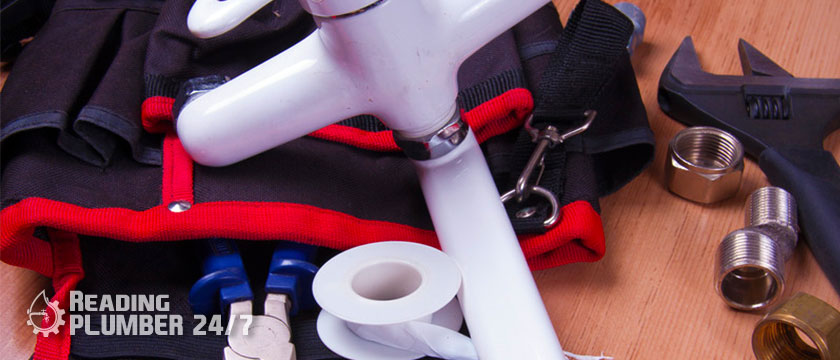
19 Jan. 22
4 Things You Don’t Know About Plumbers
We use modern plumbing solutions without thinking twice about it every day, from brushing our teeth to watering the lawn to washing dishes—until the sink breaks, a pipe bursts, or the shower won’t drain. The conveniences we took for granted have vanished without a trace.
It’s at times like these that we remember how important plumbing is, and how important it is to know people who have the technical knowledge to fix it correctly—and that’s when we call a plumber. But, until we need one, we may not consider what it’s like to be a local plumber in reading.
We spoke with a few of our plumbers to find out what it’s like to work in their industry. You might be surprised by what they said! Here are four facts about plumbers that you might not know:
Every day is a new challenge for plumbers. A day in the life of a plumber is never the same. They’re installing a new faucet in a residential kitchen one day and repairing a leak in a university swimming pool the next. Each job presents a unique challenge, which our plumbers meet with ingenuity and professional know-how.
They want to rename the garbage disposals. While this appliance is a convenient place to dump trash when cleaning up after dinner, the mention of garbage disposal repairs made all of our plumbers cringe. Many of the substances that most people deposit in these disposals aren’t intended for them. Our plumbers advised us to avoid putting too much in the garbage disposal whenever possible. Plumbers said that in an ideal world, garbage disposals would be renamed “sink disposals” or eliminated entirely. Another useful tip: one plumber recommended cleaning the disposal with lemon juice (no peels!) and ice.
Kitchen waste is more hazardous than human waste. You’re probably aware that dealing with human waste can be unpleasant. When we asked our plumbers what the dirtiest part of their job was, they said it wasn’t in the bathroom, but in the kitchen. Yes, every plumber we spoke with agreed that the most unpleasant material to work with was grease. While bathroom waste made the cut, decaying animal fat took the top spot. Regular maintenance and drain cleaning can help keep the bad stuff at bay.
Plumbers put their lives in danger to repair your pipes. Plumbing may not seem like one of the more dangerous professions, but working with high-pressure water and air-pressure systems can be dangerous. When pipes burst, they release 40 to 100 pounds of pressure on whatever is in their path, which is frequently the plumber attempting to repair them. Imagine the full force of a fire hydrant coming straight at you, releasing 200 to 400 gallons per minute; that is what a plumber faces on a daily basis. When you consider the dangers of chemicals, heavy-duty equipment, and exposure to countless diseases and germs, it’s easy to see why the job is dangerous. That is why plumbers are trained in safety and take extra precautions when performing their work (and why you should not try this at home).
You are now aware! So, the next time you turn on your faucet and water pours out on command, remember that it wouldn’t be that way if plumbers hadn’t done their jobs.
Follow the advice of our trained plumbing experts and don’t be afraid to call for assistance. Please contact us as soon as you notice a plumbing problem. It could save you the trouble of figuring out how to do it yourself, as well as the additional repair costs and potential injury.


